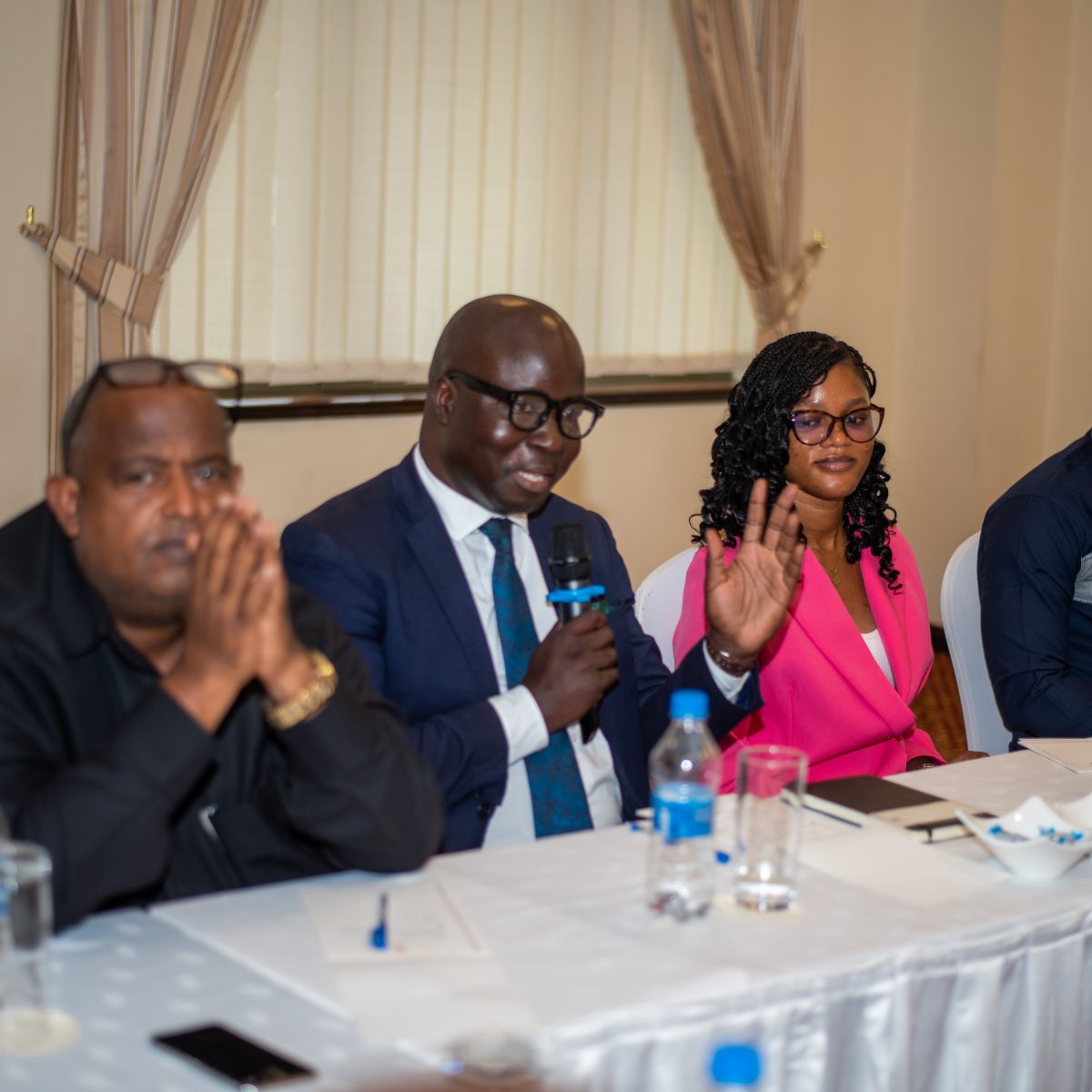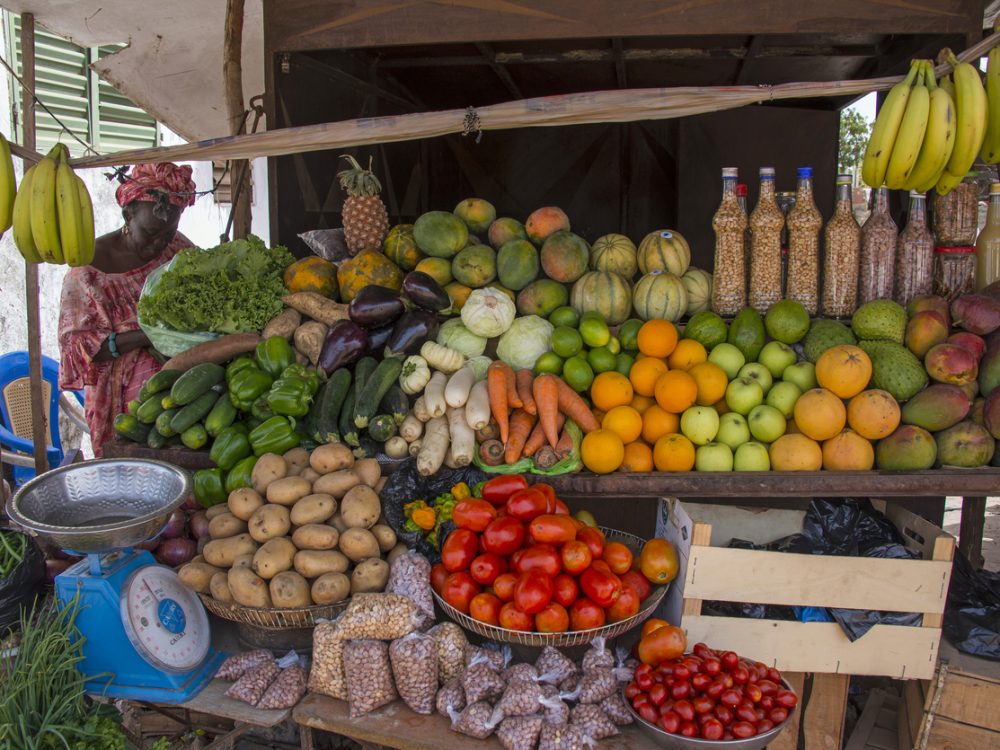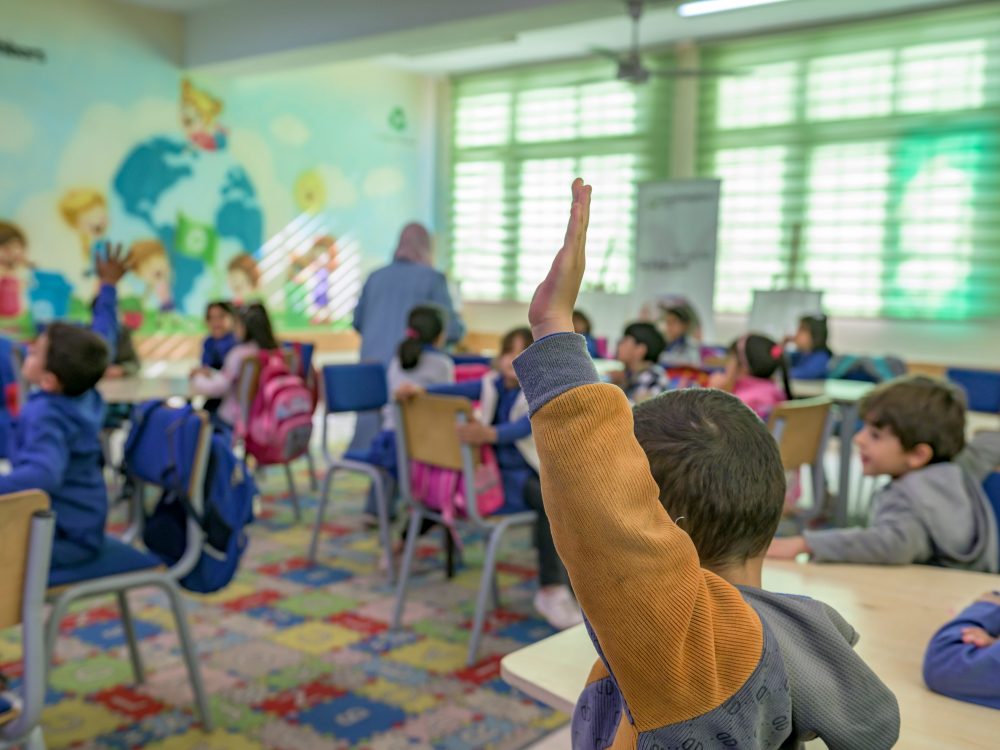
Three Key Takeaways From Discussions on Digital Transformation in Agriculture
Development Gateway: An IREX Venture (DG) hosted a discussion titled “Transforming Food Systems: The Power of Interoperability and Partnerships” at both Africa Food Systems Forum (AGRF) 2023 and the recently concluded ICT4Ag conference. Discussions from these critical events revolved around key themes crucial to DG’s ongoing work, including connecting people, institutions, partners, and systems when we think about technology working at scale to transform agriculture.
Reflecting on our participation in both AGRF and ICT4Ag, three items still stand out in particular as conversations around the digital transformation of agriculture continue into 2024:
A culture of data sharing from the top-down is key
One central point emphasized during the summit was the need for policy-making around data sharing. This illuminates a long-standing issue: decisions around agriculture aren’t just made at the national level but are part of regional value chains for which a lot of data travels from country to country.
Oftentimes, a high-level decision to mandate data sharing from the top-down can be the most effective way to establish a broader culture of data for decision-making. As we’ve observed, working on data-sharing policies or protocols project by project is extremely time- and energy-intensive. As cycles change, staff turnover with the end of projects and the beginning of new ones, and all of the work that goes into data-sharing piece by piece often gets lost or interrupted. One avenue to address this is through the use of international or regional policy treaties and conventions to push for data sharing at a broader, even continental level in Africa. This concept was discussed in several sessions and events throughout AGRF 2023 and is worth broader consideration.
At DG, this is a conversation we’re actively having as part of the aLIVE project in Ethiopia. Recently, we held talks with Ethiopia’s Minister of Agriculture, stressing that data-sharing piece by piece isn’t the most strategic approach; rather, the government could pass a high-level policy establishing a broad, collaborative approach to data sharing, so others can focus on doing the work of bringing the different data together and fixing the issue of data unavailability. Ethiopia’s recently approved data protection law is a great start.
Separately, the elephant in the room continues to be the integration of private sector data. A perception persists, even among the summit attendees, that not all stakeholders want to share their data. A significant realization (one we’ve also had through DG’s VIFAA program in Nigeria) was that the private sector, which is often perceived as reluctant to share data, could be incentivized to do so through assurance that such sharing wouldn’t place them at a strategic disadvantage. This is another important reason that a top-down approach can be pivotal.
Harmonization still needs to drive agriculture systems and effective policy-making
With the rise of generative AI, machine learning, and the data lakes that will power these innovations, interoperability is a fundamental prerequisite for scaling AgTech. True interoperability, in the form of real-time connected systems and datasets, will be difficult to institute and scale without harmonization and standardization of data first, or at least in parallel.
Investment in data harmonization requires work in breaking down existing silos—another reason the top-down approach to data sharing can be critical. Ultimately, this work leads to the development of shared indicators and subsequently, shared high-quality data. When we think about viability and interoperability, it’s on two levels: standardizing systems with data that can be aggregated, but it’s also about making better choices to not endlessly create new systems when existing ones with better resourcing could fill that need.
The Sudan case study, produced through the IFAD-funded Digital Advisory Support Services for Accelerated Rural Transformation (DAS) Program, is a good example. The team advised the Integrated Agricultural and Marketing Development Project (IFAD) to foster partnerships aimed at adopting and adapting existing digital tools (rather than developing new tools) and on the value of choosing to invest their funds to scale instead.
Localization must be built into technology development
Challenges remain in the expansion of digital space and the localization of content. Language barriers, particularly in content localization, were identified as significant hurdles. While localization was unanimously recognized as indispensable, the process was acknowledged to be resource-intensive. Additionally, the nuanced complexities of different dialects and cultural contexts were highlighted, emphasizing the need for meticulous attention to detail in content translation and adaptation.
So far, DG is making progress in localizing content by translating it into French and Arabic as part of the IFAD-funded Digital Agriculture Resources Hub. We’ve found that it takes time to find the right kind of translation to make sure that our content is localized appropriately, especially with concepts and ideas that are complex to explain in any language. For instance, a language such as Arabic is not mutually intelligible. Arabic speakers from North Africa or East Africa aren’t always going to understand Arabic that is spoken and translated by someone who is an Arabic speaker from Saudi Arabia.

A group of panelists and participants at AGRF 2023.
Way Forward
So what’s the way forward? Firstly, there is a need to consider data availability not merely as a technicality but as a powerful tool for decreasing risk around critical decisions for individuals and organizations alike. Access to key data and information can go a long way in helping everyone who works at the intersection of agriculture and technology and can build new, efficient processes for decision-making for governments, farmers, and the private sector.
In addition, we must shift toward a holistic approach to agriculture. This approach would necessitate moving beyond the siloed perspective of individual crop value chains, encouraging stakeholders to envision agriculture as an integrated system where every component plays a vital role.
Finally, we must recognize that localization is not merely a point of interest to a project. Rather, localization must be a core part of the development stage in order to ensure the work is truly designed in accordance with the country or regional context. Adequate resources and strategic planning are essential components of successful content localization initiatives, and organizations should establish these values in their work at the outset.
Share
Recent Posts

Development Gateway Collaborates with 50×2030 Initiative on Data Use in Agriculture
Development Gateway announces the launch of the Data Interoperability and Governance program to collaborate with the 50x2030 initiative on data use in agriculture in Senegal for evidence-based policymaking.

Strengthening Online Safety Through Prevention in the Philippines
Tech-Facilitated Gender-Based Violence continues to evolve alongside emerging technologies. This blog explores how preventative measures, such as the Safety By Design approach, can be used to create a safer internet.

Preparing Jordan’s Education System for the AI Age
This blog introduces Asas, an early grade education program led by IREX and DG in partnership with Jordan’s Ministry of Education, and explores what AI readiness looks like in early grades and how AI can be integrated safely and sustainably into education systems.